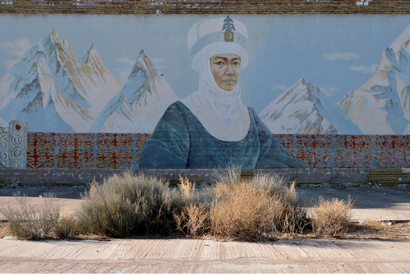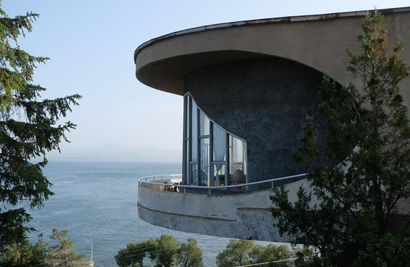Photo Essay: Inside Tashkent's Space-aged Subway Station

After the ban on photographing the Tashkent metro in Uzbekistan was lifted in 2018, Amos Chapple went to Uzbekistan to photograph the stations on the Tashkent subway. Here are a few of his photos…

Photography inside the heavily policed metro was forbidden until June 2018 because of the military sensitivity of its second role as a nuclear bomb shelter

Valentina Tereshkova, the first woman in space. Tashkent’s Cosmonauts Station honors the enduring icons of the space race with its Milky Way glass star ceiling and atmospheric azure walls.

A cashier at an entrance to the metro. A trip costs 1,200 Uzbek soms (12p), making it the cheapest subway ride in the former USSR

A shimmering corridor linking two stations. After an earthquake devastated Tashkent in 1966, cautious planners reportedly reduced the depth and increased the strength of the metro, tunnelling within a few metres of the streets above.

A mural celebrating 2,200 years since the founding of Tashkent, inside Tashkent station

Comrade Kiev create's sustainable, ethical, design-led tours to the most incredible places on earth, including Uzbekistan. We’ve built close relationships with local guides, and will work with you to create an extraordinary trip which fits your budget, timeline and interests.
Follow in the footsteps of legendary polar explorers, climb smoking volcanoes in the remote Far East, or cross the endless Gobi desert on camelback. We’ll take you there. We’ll get you closer. Learn more






